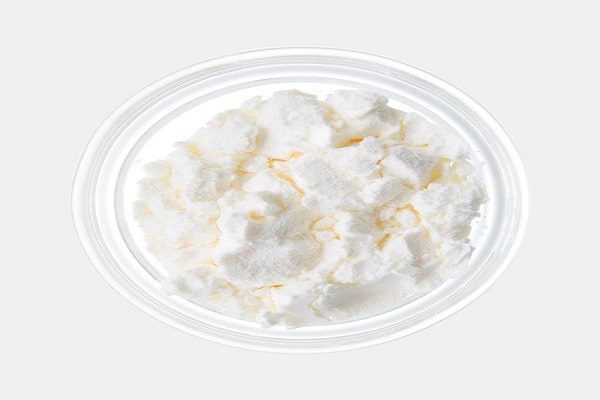Maximizing Wellness With CBN Isolate: Applications And Dosage Guidelines

In recent years, the spotlight on cannabinoids has expanded beyond the well-known THC and CBD to include lesser-known compounds with promising therapeutic potential. One of these cannabinoids that has gotten a lot of attention is cannabinol (CBN). It has some interesting qualities and might be good for your health. As research into the therapeutic effects of CBN continues to evolve, so too does our understanding of its applications and optimal dosage guidelines for maximizing wellness.
Understanding CBN Isolate
CBN is a non-intoxicating cannabinoid found in trace amounts in the cannabis plant. It is sometimes called the “sleepy cannabinoid” because it is thought to make people sleepy. Unlike THC, which is primarily derived from the decarboxylation of tetrahydrocannabinolic acid (THCA), CBN is formed through the degradation of THC over time, particularly when exposed to oxygen and heat.
CBN isolate is a purified form of CBN that has been extracted from the cannabis plant and refined to remove all other cannabinoids and impurities, resulting in a product that is nearly 100% pure CBN. This isolation process allows for precise dosing and targeted administration, making it a valuable tool for exploring the therapeutic potential of this cannabinoid.
Applications Of CBN Isolate
- Sleep Aid:
One of the most well-known applications of CBN isolate is its potential to promote sleep. Research suggests that CBN may possess sedative properties that could help individuals struggling with insomnia or other sleep disorders. CBN may help control sleep-wake cycles and promote relaxation by working with the body’s endocannabinoid system (ECS). This may lead to better sleep quality.
- Pain Management:
New data suggests that CBN may also have pain-relieving properties, which makes it a possible choice for treating pain and inflammation. Studies have shown that CBN interacts with cannabinoid receptors in the ECS, which play a role in modulating pain perception. Additionally, CBN may work synergistically with other cannabinoids, such as CBD, to enhance pain relief without the psychoactive effects associated with THC.
- Appetite Stimulation:
While THC is traditionally associated with stimulating appetite, preliminary research suggests that CBN may also influence appetite regulation. Some research studies have shown that CBN may make animals eat more, which suggests that it might help people who are losing their appetite because of medical conditions or medicines like chemotherapy.
- Neuroprotection:
CBN has shown promise in preclinical studies for its potential neuroprotective effects. Researchers think that CBN may help protect neurons from damage caused by diseases like Parkinson’s and Alzheimer’s by lowering inflammation and oxidative stress in the brain. While more research is needed to fully understand the mechanisms underlying CBN’s neuroprotective properties, these findings hold promise for the development of novel therapies for neurodegenerative disorders.
Dosage Guidelines
Determining the appropriate dosage of CBN isolate depends on several factors, including individual physiology, the desired therapeutic outcome, and the method of administration. Since CBN is not as well-studied as other cannabinoids like CBD and THC, dosage guidelines may vary, and it is important to start with a low dose and gradually titrate up to assess tolerance and efficacy.
- Oral Administration:
CBN isolate can be consumed orally by placing it under the tongue (sublingual) or mixing it with food or beverages. When taken under the tongue, the drug is absorbed faster into the bloodstream, so the effects happen more quickly. For beginners, a starting dose of 2.5–5 mg of CBN isolate is recommended, with adjustments made based on individual response.
- Topical Application:
CBN isolate can also be incorporated into topical products such as creams, lotions, and balms for localized relief of pain and inflammation. When using CBN topically, start with a small amount and apply it to the affected area, gradually increasing the dose as needed. It is important to note that topical application may result in slower onset and longer duration of action compared to oral administration.
- Inhalation:
While less common, some individuals may choose to inhale CBN isolate using vaporizers or dab rigs. Inhalation allows for rapid onset of effects but may not be suitable for everyone, especially those with respiratory issues. If opting for inhalation, start with a small dose and titrate carefully to avoid adverse reactions.
Conclusion
As interest in cannabinoids continues to grow, so too does our understanding of their therapeutic potential. CBN isolate represents a promising avenue for exploring the health benefits of this lesser-known cannabinoid. From promoting sleep to managing pain and inflammation, CBN offers a range of potential applications for enhancing wellness. By following dosage guidelines and consulting with healthcare professionals, individuals can maximize the benefits of CBN isolate while minimizing the risk of adverse effects. As study into CBN and other cannabinoids goes on, we can expect to learn even more about how they help people’s health and well-being.


